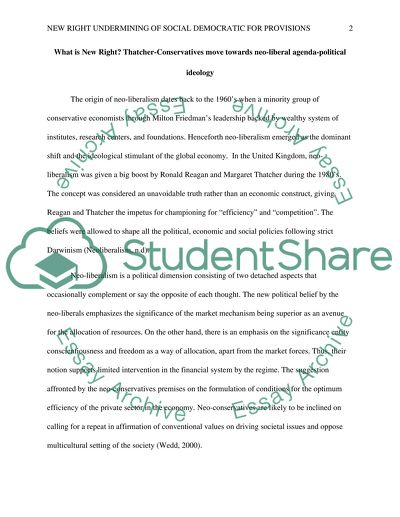Cite this document
(“In what ways did the New Right attempt to undermine social democratic Essay”, n.d.)
In what ways did the New Right attempt to undermine social democratic Essay. Retrieved from https://studentshare.org/miscellaneous/1675150-in-what-ways-did-the-new-right-attempt-to-undermine-social-democratic-approaches-to-poverty-and-welfare-provision
In what ways did the New Right attempt to undermine social democratic Essay. Retrieved from https://studentshare.org/miscellaneous/1675150-in-what-ways-did-the-new-right-attempt-to-undermine-social-democratic-approaches-to-poverty-and-welfare-provision
(In What Ways Did the New Right Attempt to Undermine Social Democratic Essay)
In What Ways Did the New Right Attempt to Undermine Social Democratic Essay. https://studentshare.org/miscellaneous/1675150-in-what-ways-did-the-new-right-attempt-to-undermine-social-democratic-approaches-to-poverty-and-welfare-provision.
In What Ways Did the New Right Attempt to Undermine Social Democratic Essay. https://studentshare.org/miscellaneous/1675150-in-what-ways-did-the-new-right-attempt-to-undermine-social-democratic-approaches-to-poverty-and-welfare-provision.
“In What Ways Did the New Right Attempt to Undermine Social Democratic Essay”, n.d. https://studentshare.org/miscellaneous/1675150-in-what-ways-did-the-new-right-attempt-to-undermine-social-democratic-approaches-to-poverty-and-welfare-provision.


